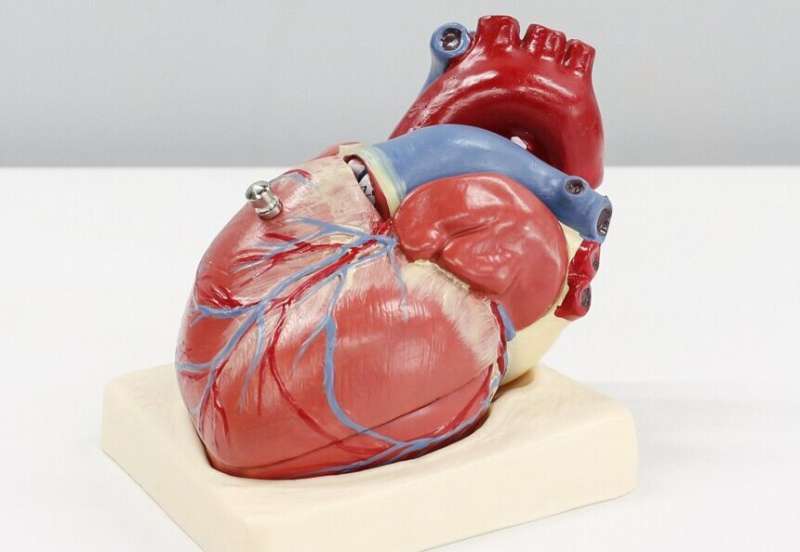Understanding Listeria: Bacteria, Risks, and Prevention Measures

What is Listeria? Insights into the Bacteria, Risks, and How to Stay Safe
Recently, there have been cases linking listeria contamination to ice cream products, raising public health concerns. Listeria monocytogenes is a harmful bacterium capable of contaminating a variety of foods and causing severe infections, especially in vulnerable populations such as pregnant women, newborns, the elderly, and immunocompromised individuals.
In Baltimore, at least two instances of listeria have been associated with contaminated ice cream, prompting investigations and safety alerts. A notable case involves a woman filing a lawsuit after her newborn tragically died due to listeria-related complications, which she alleges originated from contaminated products sold in a local supermarket. Additionally, nationwide recalls have been issued for numerous ice cream brands, including Hershey's, Jeni's, and others, following a discovery of contamination at a manufacturing facility.
What is Listeria?
Listeria is a bacterium that can thrive in refrigerated conditions, making it particularly challenging to control. As explained by infectious disease expert Shmuel Shoham, listeria can grow at temperatures as low as 2°C and can form biofilms, allowing it to persist in food processing environments. This resilience underscores the importance of meticulous hygiene and proper food handling.
High-Risk Foods
Certain foods are more prone to contamination, including:
- Soft cheeses
- Hot dogs
- Cold cuts
- Unpasteurized milk products
- Pre-cut fruits and vegetables
- Raw shellfish and seafood
Shoham highlights that soft cheeses are particularly susceptible since many are produced in small facilities with potentially lower hygiene standards.
Symptoms of Listeria Infection
Infections can present with symptoms such as:
- Fever
- Muscle aches
- Nausea
- Diarrhea
Most individuals with listeria experience gastrointestinal symptoms that often go undiagnosed since testing is not routine. However, in high-risk groups, the infection can lead to more serious issues, including bloodstream infections and neurological complications.
Who is Most at Risk?
The groups most vulnerable to listeria include:
- Pregnant women
- Newborns
- Adults aged 65 and older
- People with weakened immune systems
Pregnant women are specifically advised to avoid high-risk foods to prevent infection, which can pose dangers to both mother and fetus.
Treatment and Prevention
Most healthy individuals recover without treatment, as the infection tends to be self-limited. Still, high-risk patients often require antibiotics such as amoxicillin or trimethoprim-sulfamethoxazole.
Preventative measures include:
- Being aware of foods prone to contamination
- Choosing safer food options
- Practicing good hygiene: cleaning, separating, and cooking foods thoroughly
- Staying informed about food recalls and outbreaks
Proper cooking of animal products, washing raw vegetables, and avoiding unpasteurized dairy products are key steps. Public health authorities monitor outbreaks and issue advisories to help prevent listeria infections.
Understanding how listeria spreads and taking appropriate precautions can significantly reduce the risk of severe illness. Remember, food safety is crucial in protecting your health and that of your loved ones.
Stay Updated with Mia's Feed
Get the latest health & wellness insights delivered straight to your inbox.
Related Articles
New ESC/EAS Guidelines Introduce Enhanced Strategies for Cardiovascular Risk Assessment and Lipid Management
The latest ESC/EAS guidelines introduce improved cardiovascular risk prediction tools and treatment strategies, including statins for high-risk groups, to enhance lipid management and prevent cardiovascular disease.
Increase in Medicare Part D Beneficiaries Affected by Insurer Withdrawals Sparks Concern
A new study reports a surge in Medicare Part D insurer exits affecting millions of beneficiaries, raising concerns over coverage stability and costs amidst recent policy changes.
Traditional Fecal Transplant Outperforms New Oral Therapy in Severe C. difficile Cases
A recent study reveals that traditional fecal microbiota transplants via colonoscopy outperform newer oral spores therapy in severe C. difficile infections, highlighting differences in long-term outcomes and recurrence severity.
Hormone Discovery Reveals Mechanism of Immune Suppression in Cancer Progression
A new study reveals how a hormone suppresses immune cells, enabling cancer to evade detection. Insights into this mechanism could lead to innovative immunotherapy treatments.



